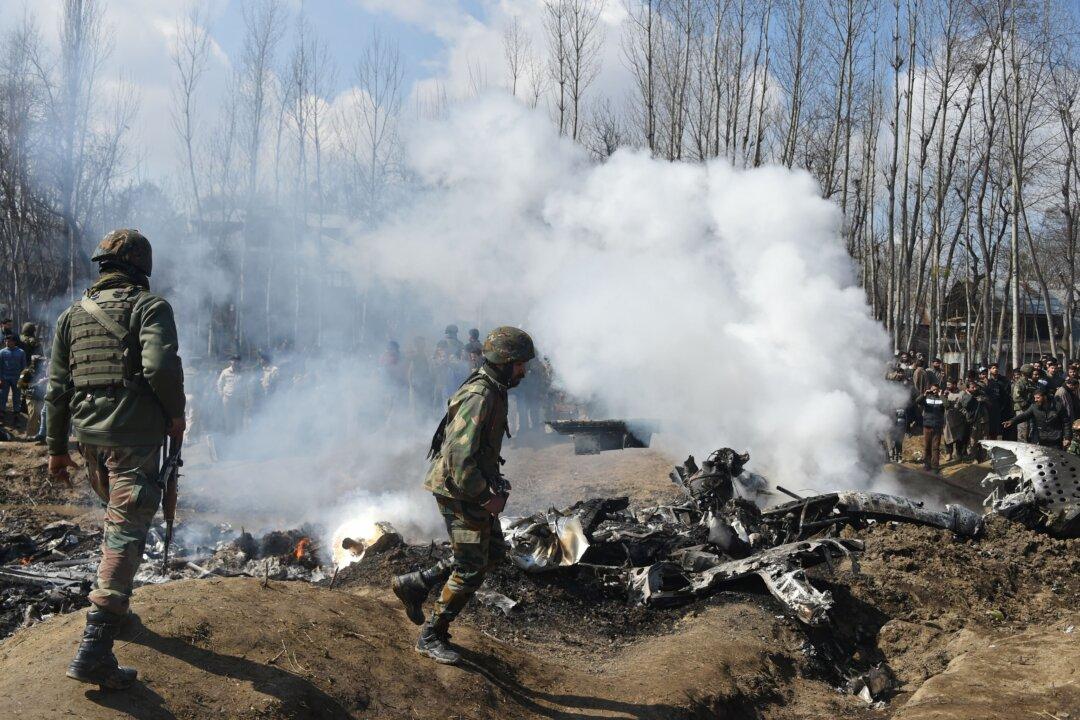Pakistan’s prime minister on Feb. 28 said his country will return a captured Indian pilot as a gesture of peace as Indian and Pakistani ground troops continue to exchange fire in certain areas. The United States, meanwhile, has been trying to defuse the escalating crisis between the two nuclear powers.
The gesture comes a day after both countries claimed to have downed each other’s military jets. The captured pilot, identified by Pakistan as Wing Commander Abhi Nandan, became the human face of the conflict after footage of his capture was posted by the Pakistani government’s official Twitter account.





